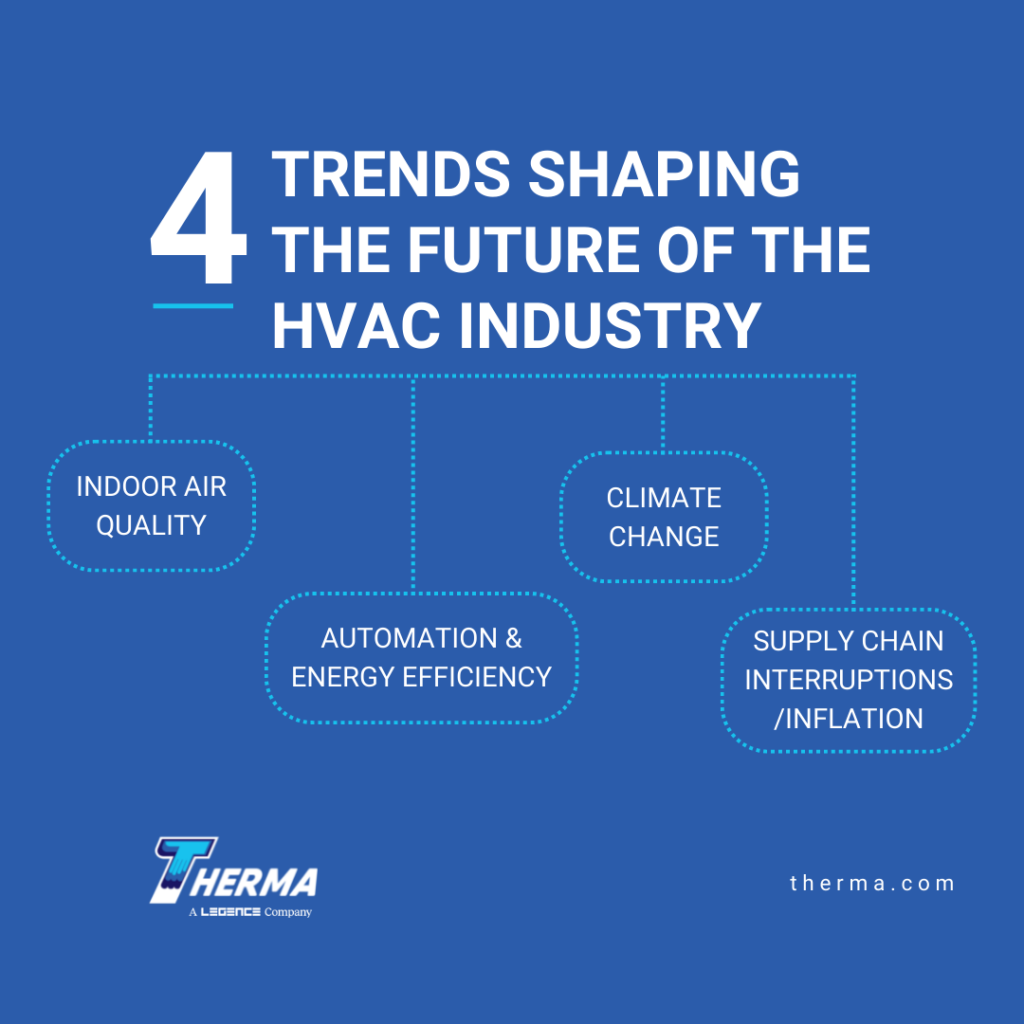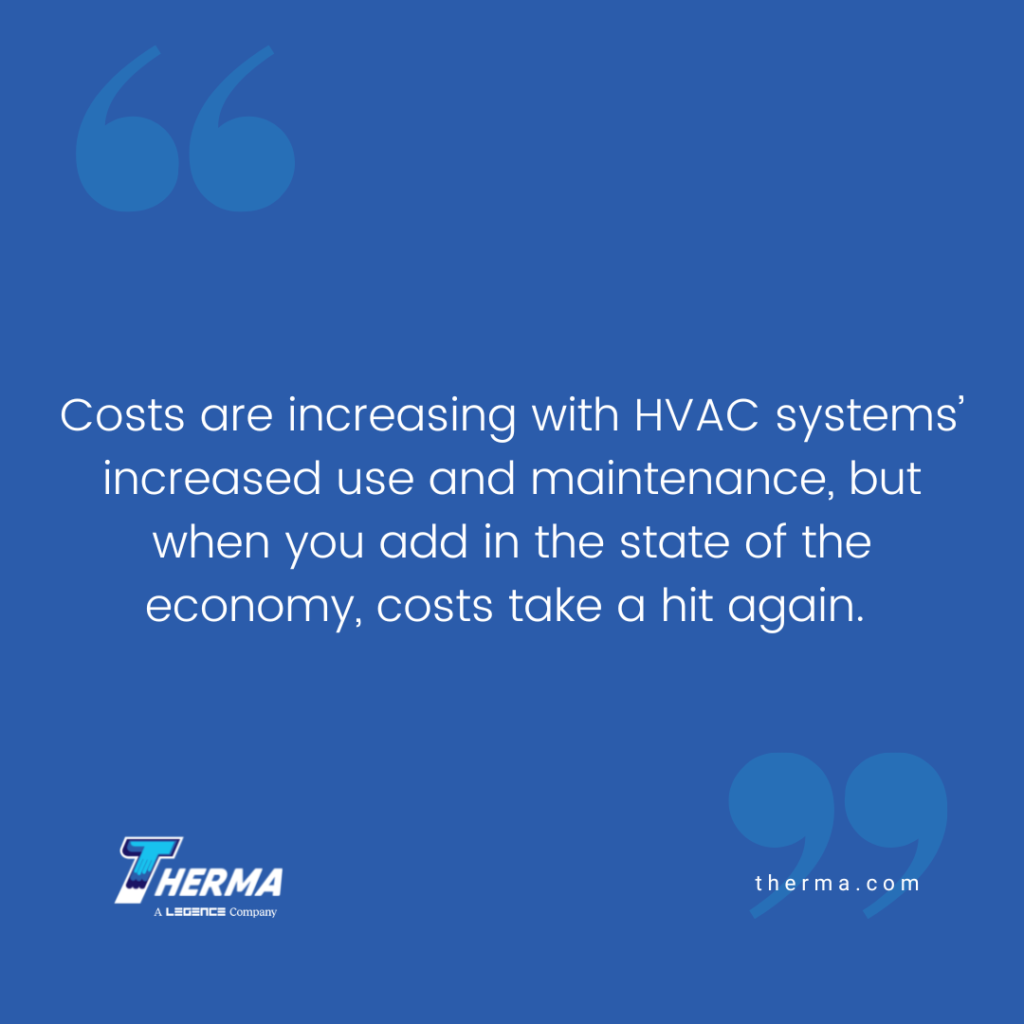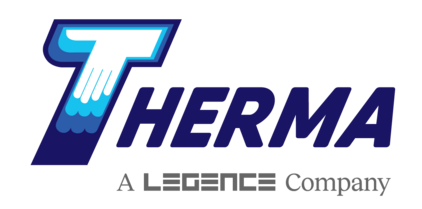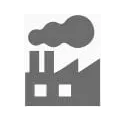by Patti Dees
World events are driving HVAC industry trends as clients grapple with COVID, climate change, inflation and supply chain disruptions. Trends in projects focus on indoor air quality (IAQ), higher efficiency, smart technology and automation and maintenance best practices.
4 Trends Shaping the Future of the HVAC Industry
Four key trends are shaping up in the HVAC industry. They are:
- Focus on ventilation and indoor air quality.
- Advances in automation, smart tech, and energy efficiency.
- Climate change and record-setting weather events.
- Supply chain interruptions and inflation-related higher cost of services.
These trends in the HVAC industry reflect both vendor and clients’ responses to a myriad of significant current events.
 1. Renewed focus on ventilation and indoor air quality (IAQ)
1. Renewed focus on ventilation and indoor air quality (IAQ)
Research conducted by Consulting-Specifying Engineer in the HVAC Systems & BAS Report for 2021 indicated that clients are making system changes to incorporate additional ventilation and IAQ features. The COVID-19 pandemic response resulted in the following HVAC industry trends:
- Improved filtration
- More and better control over outside ventilation
- Pressure regulation within specific rooms
- UV-C technologies
The exact products used depend on the use of the building. For example, health care facilities require a more stringent approach to IAQ and ventilation than most office buildings.
2. Climate change and record-setting weather events
Changes to HVAC usage are needed in response to increases in heating and cooling cycles in different regions. As occupants use a building’s HVAC system more, maintenance also becomes more frequent.
3. Supply chain disruptions and inflation-driven cost increases
Both managers and owners should expect higher costs for installation and maintenance. Costs are increasing with HVAC systems’ increased use and maintenance, but when you add in the state of the economy, costs take a hit again. Maintenance staff may have difficulty getting parts, and those parts will probably come at a higher cost, as supply and demand remain out of sync.
However, there are ways to help curb those increases. For example, regular preventive maintenance (PM) can improve system performance and extend the equipment lifecycle, reducing the frequency of sudden repairs.
Project management (PM) becomes more important both as a means to delay replacement when possible and to give staff an idea of which parts will be needed before a system outage becomes an emergency. Automation and smart technology can help monitor and regulate temperatures and the status of the equipment, but new projects may cost more.

4. Focus on energy efficiency, automation and smart tech
Projects continue to take advantage of advances in automation and smart technology, with a renewed focus on energy efficiency. A 2022 report from Consulting-Specifying Engineer on building automation and control systems lists energy efficiency as a significant concern for clients with over 70% of respondents highlighting it as an important factor in their clients’ projects. By comparison, the next most important feature was interconnectivity between systems, indicated by only 30% of respondents.
Efficiency — and its link to the trends in HVAC automation and smart technology — becomes increasingly important as facility managers try to manage changes in operation and maintenance costs.
The Future of HVAC
These four HVAC industry trends will impact both managers and owners. As these individuals consider new projects, upgrades or how to improve their maintenance plans, Therma’s HVAC team can help. Our professionals use their experience and knowledge to balance their clients’ needs with the technology available. Contact us today!
Patti draws on her background as a chemical engineer to share information with readers on technology, manufacturing and construction.
Sources
ACHR News – HVAC 2022: Another Year of Economic Churn
Consulting-Specifying Engineer – How HVAC will change due to COVID
Consulting-Specifying Engineer – Research: What do you need to know about HVAC and BAS?







